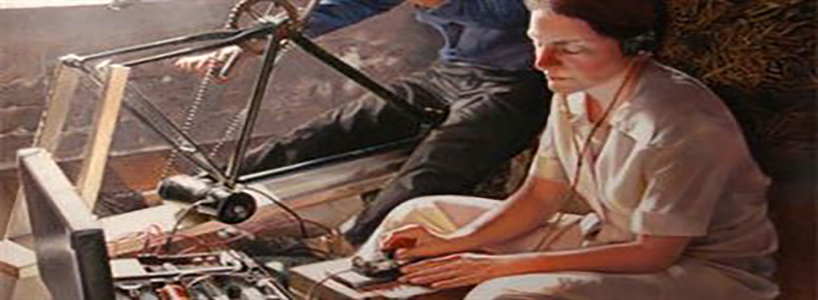Beautiful spies. Handsome bureaucrats. Linen suits and white bucks. Making love in a hot car in a hot desert in a shamal. Blasting Nazis. Subversion. Espionage. What more could we want from a Sunday afternoon matinee? “While it may not quite be the modern-day ‘Casablanca,’” one reliable review explains thatAllied¸Robert Zemeckis’ new release, “is nevertheless a grandly entertaining stab at old-fashioned storytelling . . . buoyed by smart and stylish filmmaking, a good performance by Brad Pitt and an even better one from Marion Cotillard.” There’s my Sunday afternoon.
BEHIND THE FILM
Allied is even more entertaining for the finger it points to the true stories of those women spies of the World War II era who had a big hand in helping save the world from Nazism and fascism. “Scores of female operatives worked for the S.O.E. These women were trained to handle guns and explosives, memorize complex codes, organize munitions and supplies drops, endure harsh interrogation, and, in some cases, were in charge of thousands of men,” writes Vanity Fair’s Erika Jarvis. “To follow their stories is to follow the trajectory of the war.” And you can follow their stories in both great books and film.
WREAKING HAVOC
Five amazing women spies worth reading about are Vera Atkins, Krystyna Skarbeck, Nancy Wake, Pearl Cornioley, and Virginia Hall (and there are many others). Among them are espionage experts who mixed it up with everyone from Winston Churchill to Klaus Barbie, led thousands of the French Marquis to victories, mesmerized men into submission, and inspired the stories of 007. While stereotypes about weak women back then may have given these spies the kind of access to inner circles it would be much more difficult for men to gain, their long term successes weren’t about beauty or gender, but smarts, fighting and spying skills, indomitable courage in the face of grave danger, and a kind of plain pragmatic grit that characterizes the most heroic. As Pearl Cornioley observed when the Crown awarded her The Most Excellent Order of the British Empire—an honor for civilian achievements in war—“There was nothing remotely ‘civil’ about what I did. I didn’t sit behind a desk all day.’” Not even close.
ALL WALKS OF LIFE
They were aristocrats, upper class, middle class, and lower class. They came from great wealth on one end of the spectrum, and abusive alcoholic homes on the other. And they took every opportunity to advance their own dreams of serving their country in immensely valuable ways. “Nancy Wake’s life couldn’t have been sweeter,” Jarvis writes. “She married a wealthy man in Marseille, and was accustomed to breakfasting in a large bath with champagne and caviar on toast.” On the other hand, Pearl Cornioley’s father was an alcoholic. Pearl got to spying by way of a job as a typist for the government, but “made it very clear that she wanted to work with the French underground.” American Virginia Hall didn’t let her “wooden leg and a limp” keep her out of the Churchill’s Special Operations Executive. And Krystyna Skarbeck’s aristocratic charisma meant that “for the rest of her life she excelled in charming men. And as she roamed Europe on secret missions, she left many of them heartbroken.” Ian Fleming was inspired.
FASCINATING STORIES
All of them are fascinating stories, and books like Spymistress, The Spy Who Loved Me, SEO’s Greatest Heroine, Memoirs of a World War II Special Agent, and The Wolves at the Door: The True Story of America’s Greatest Female Spy tell their tales in great, exciting detail.
For now, I’m heading to the Regal Rockville cinema, grabbing some popcorn and settling back to watch Allied, “a lovely homage to the kind of entertainment that Hollywood used to put out in the day without breaking a sweat . . . .”
Have a great weekend.




